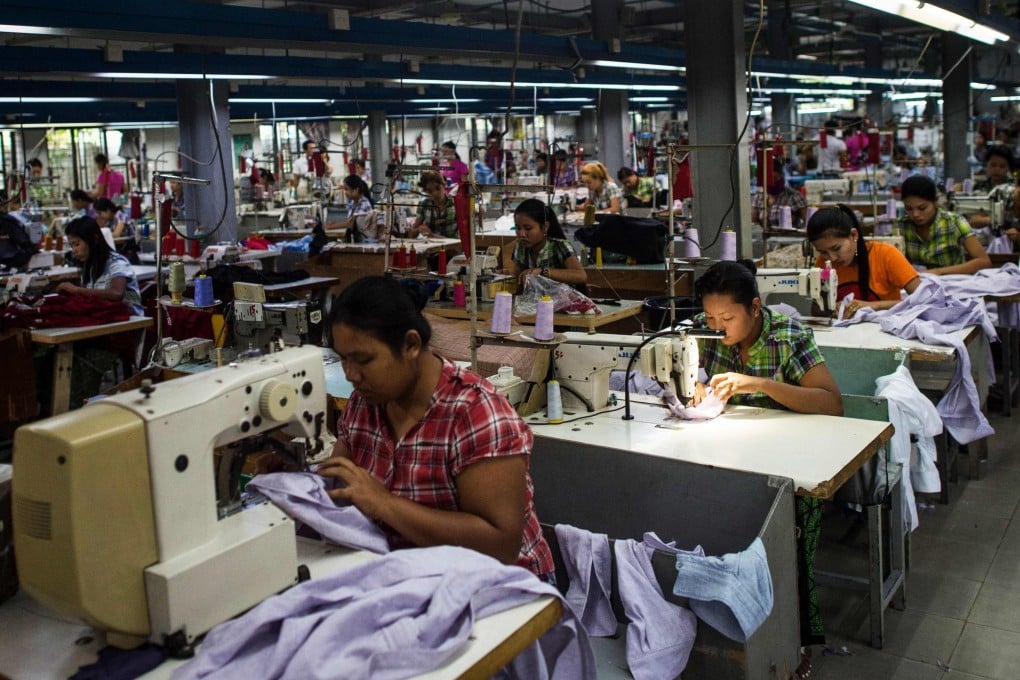Fashion brands from Zara to H&M urged to make ‘responsible exit’ from Myanmar
- Workers at factories linked to the supply chains of global firms have faced increased abuse, including wage theft and sexual harassment, according to a new report
- If brands ‘cannot guarantee the protection of workers’ rights in their supply chains, a responsible exit from the country is the only way forward’, the group behind the study says

The Business & Human Rights Resource Centre, an international NGO that tracks the human rights impacts of companies, on Tuesday released a study that revealed “widespread and systemic abuse in international brands’ supply chains”. This included wage theft, abusive work rates, mandatory unpaid overtime, as well as gender-based violence and sexual harassment.
The non-profit group, along with partners, compiled 104 cases of labour and human rights violations against at least 60,800 workers in Myanmar’s garment sector from February 1 last year to date, based on publicly recorded information.

“Brands must wake up to the harsh reality that decent working conditions no longer exist in Myanmar and continuing business as usual is no longer helping to ‘protect jobs and workers’, as has been repeatedly claimed,” said Alysha Khambay, head of labour rights at the Business & Human Rights Resource Centre.
“When the military isn’t conducting door-to-door searches in hostels and homes, their presence is being requested by factories to threaten workers into silence,” she noted.
Researchers said that the data highlighted not only the scale and scope of abuse in the 18 months since the military seized power, but also the “widespread impunity” enjoyed by perpetrators.
